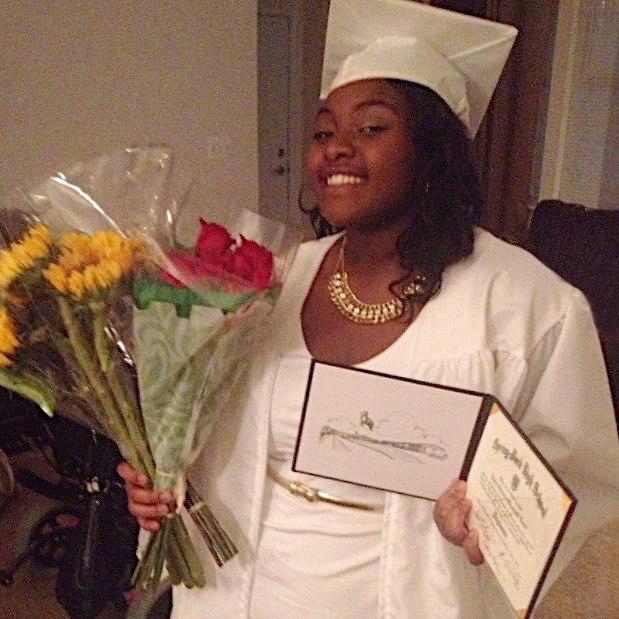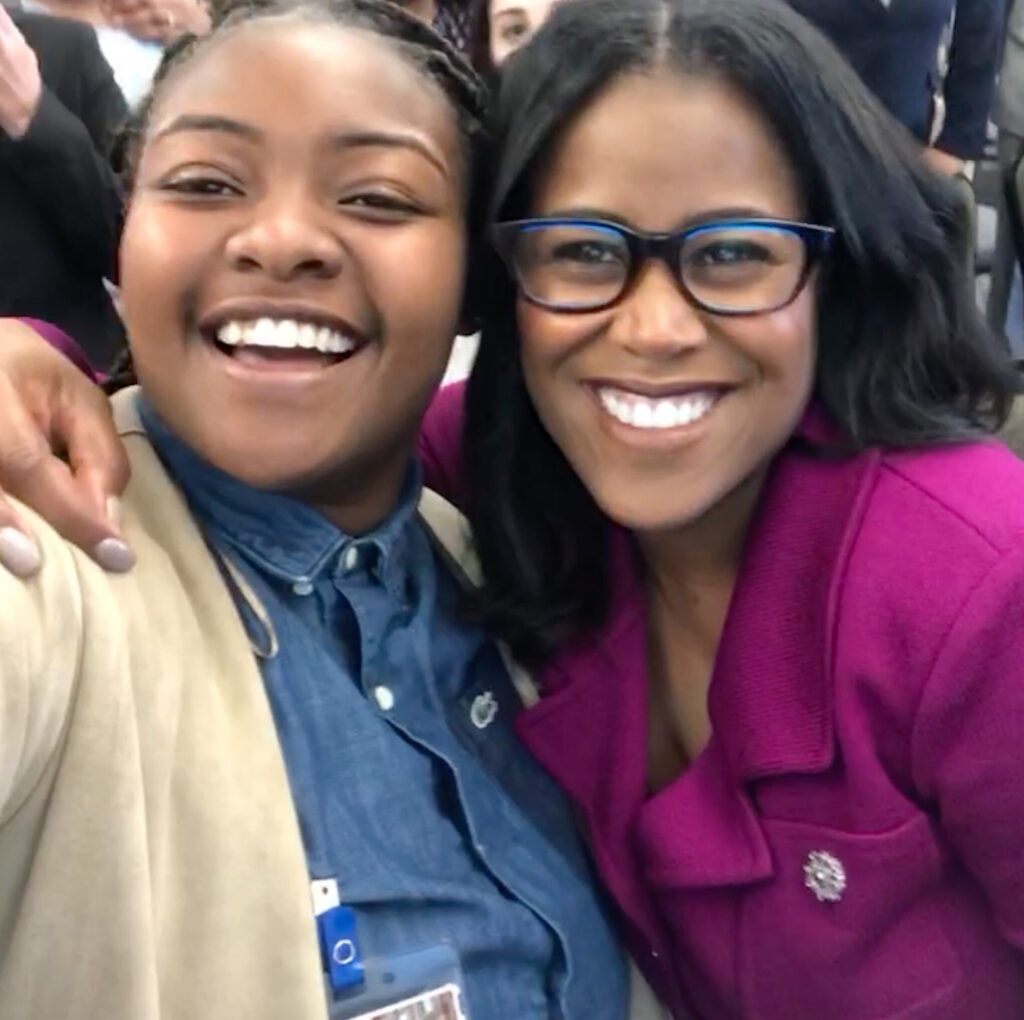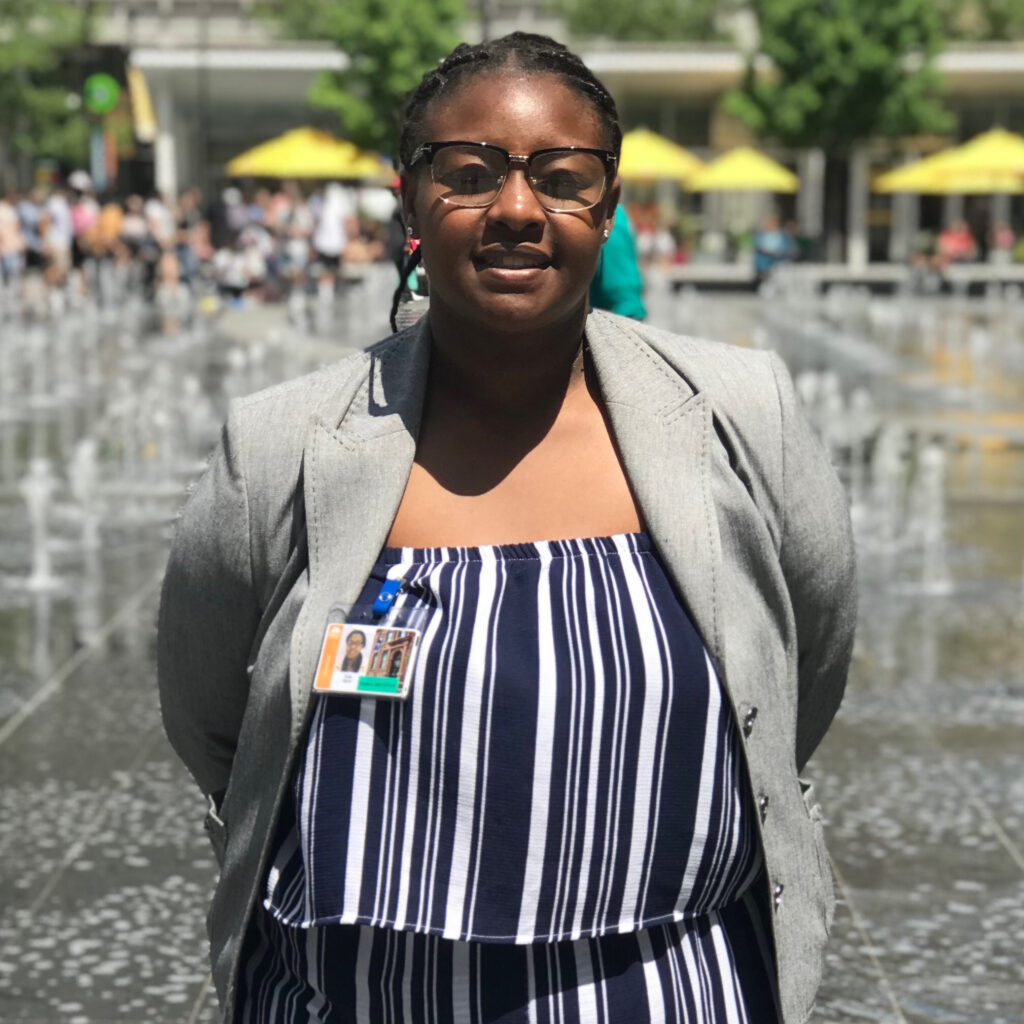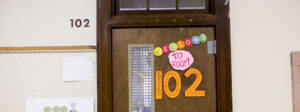Third-year college student Tynia Bond discusses how her K-12 experience and her teachers’ expectations prepared her for life after high school.
What are you up to these days?
I'm currently majoring in Business Administration at Peirce College in downtown Philadelphia, and I’m about to start an internship at BNY Mellon. I’ve always wanted to do investment type work, so that's exciting.

"My school had about a 30 percent graduation rate, so I think the teachers in the regular classes already had their minds made up that we were going to fail."
Can you tell me how you got to where you are today?
I graduated from high school in June 2013 and started college a month later at the Art Institute of Philadelphia. If I’d had a traditional path, I would have finished college about a year ago—but that’s not what happened. My first year of college, I founded a nannying service, along with continuing to take care of my grandmother, who I’d been a full-time care-taker for since my second year of high school. It wasn’t easy doing it all, but I got good grades. Because of a controversy around the school, and my grandmother’s worsening health, I withdrew from college after my second year and got a job at McDonald’s, while continuing to run the nannying service and take care of my grandmother. Then, I joined Job Corps where I earned several certificates in electrical engineering. Through all of that, I was still determined to earn my bachelor’s degree, and about a year ago I was accepted to Year Up where they helped me enroll in Peirce and get the internship.
To step back a bit, what kind of student were you in high school?
I got good grades, As and Bs, maybe a C every once in a while, and I ended up graduating with a pretty good GPA, a 3.2. I took honors classes in 10th and 11th grade. Then in 12th grade, I took mostly electives because I’d finished the majority of my required classes. But math is where I really struggled. Well, I won’t say I struggled, because I knew the material, I just didn’t apply that knowledge or apply myself in that class in general.
Why do you think you didn’t apply yourself?
I got bored with it and felt like it was repetitive. So then, when I would miss something, or get behind on homework, I wouldn’t take it seriously. And on top of that, I learned everything extremely quickly—like if you explained a formula to me, I'd be able to repeat it instantly—but then once I left the classroom, I just wrote it off and wouldn’t do my homework or study for tests.
At one point, I got placed in remedial math class; then I tested out because I didn't want to be there anymore. They were teaching us basic skills like division and algebra, which I already knew. It felt like a waste of my time. But when I got back to the regular class, I still didn't take it seriously because it still felt repetitive and boring. I have this pattern where instead of honing what I'm good at, when I feel like something is easy for me, I brush it to the side. Now, I realize that being a fast learner is a gift. If you keep working at something you’re good at, instead of just having potential, you actually can maximize your talents and become great, or become greater. I don't write everything off anymore; I look at everything as an opportunity.

"I read that, though a lot of schools give the most attention to A students and failing students, it’s students like me, students who sometimes get Cs, who really have the skills to run the world.”
(Pictured: Tynia with her role model Thasunda Duckett, the first Black CEO of JPMorgan Chase's consumer banking division.)
Is there a time you remember finding yourself getting bored and your grades slipping, and you saw an opportunity for an adult to push you? What did they do?
I had this one teacher in 9th grade, his name was Mr. O'Hara. He gave us a homework assignment where he told us to pretend we were writing a message in a bottle. It was supposed to be a simple assignment. But I actually made a bottle—I built a bottle by hand and put a ship in it, and then, of course, I wrote my letter and put it in there, too. So, he saw me go above and beyond. And after that, he pushed for me to get into honors and AP classes, because he noticed that, though I didn’t participate in class, it wasn’t because I wasn’t smart. Honestly, I wasn’t participating because I didn’t feel like I deserved the attention. In my other classes, it seemed like teachers only cared about you if you were getting As or failing, and they didn’t notice when I didn’t participate because I wasn’t either type of student. So, I was used to not being noticed—but that project helped him see my potential.
After that, Mr. O'Hara and several of my other teachers—Mr. Zeller, my English teacher, was a big one—pushed for me to get into the college prep track at my school. But Ms. Blum (name changed), who ran the program, refused to accept me because I got Cs. I genuinely think Ms. Blum was passionate about education, but only if it’s done in a very specific way. I read that, though a lot of schools give the most attention to A students and failing students, it’s students like me, students who sometimes get Cs, who really have the skills to run the world, and A students work for them.
I feel like Ms. Blum liked the A and B students because they followed orders. She seemed to have disdain for me because people were talking me up, but then my grades weren’t there. In her mind, she was probably like, “If you’re saying Tynia can perform and succeed like this, then why's she not producing on paper?” That's kind of the vibe I got from her, and she didn't want to hear what anyone had to say about it, especially me. And I did try to talk to her, many, many times.
I took it seriously. So even though she didn't accept me, I wound up taking all the classes that the students in the college prep program took—and that’s when my grades improved tremendously. I think it’s because I felt like I was actually learning; things that I might use outside of school or read about on my own time. Also, I’m sad to say, but the honors teachers cared more. My school had about a 30 percent graduation rate, so I think the teachers in the regular classes already had their minds made up that we were going to fail and didn’t think it was worth the effort to try to get us to learn—it was clear they didn’t expect a lot of us.

"If I'm 56 and still working on my bachelor's degree, I’m going to keep trying; I’m never going to stop."
You mentioned that you’ve always wanted to get your bachelor's degree, and today you're still working toward it. What’s kept you motivated?
I don’t give up on my goals—which is something I didn’t learn about myself until college, or really until I started Year Up, to be honest. I can be very focused and driven, and even though sometimes I’ll get distracted or try to do too much, I always get back on track. If I'm 56 and still working on my bachelor's degree, I’m going to keep trying; I’m never going to stop.
Read more about students' experiences in school in The Opportunity Myth—then take the first step by requesting your own free action guide featuring tools and advice to help more students in your community have worthwhile experiences in school.
All photos courtesy of Tynia Bond.





